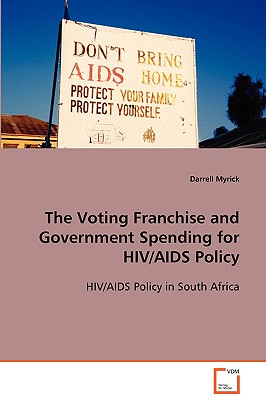Government spending is a vital component of public finance that enables government to deliver services and implement policies of the executive. This research examines government spending for HIV/AIDS treatment at the provincial sphere of government and queries whether citizens can influence public policy decision-making for HIV/AIDS treatment. The research considers the nature of the state, it being either a unitary system or a federal system - centralised or decentralised. Importantly, the research examines the effect of citizen constituents on public policy decision-making, as they exercise their franchise to vote. In other words, the research empirically examines how government has spent in response to the HIV/AIDS epidemic and measures any influence voters may have on government spending.
| FindBook |
有 1 項符合
The Voting Franchise and Government Spending for HIV/ AIDS Policy的圖書 |
 |
The Voting Franchise and Government Spending for HIV/ AIDS Policy 作者:Myrick 出版社:VDM Verlag Dr. Mueller E.K. 出版日期:2008-10-06 語言:英文 規格:平裝 / 212頁 / 22.9 x 15.2 x 1.3 cm / 普通級 |
| 圖書館借閱 |
| 國家圖書館 | 全國圖書書目資訊網 | 國立公共資訊圖書館 | 電子書服務平台 | MetaCat 跨館整合查詢 |
| 臺北市立圖書館 | 新北市立圖書館 | 基隆市公共圖書館 | 桃園市立圖書館 | 新竹縣公共圖書館 |
| 苗栗縣立圖書館 | 臺中市立圖書館 | 彰化縣公共圖書館 | 南投縣文化局 | 雲林縣公共圖書館 |
| 嘉義縣圖書館 | 臺南市立圖書館 | 高雄市立圖書館 | 屏東縣公共圖書館 | 宜蘭縣公共圖書館 |
| 花蓮縣文化局 | 臺東縣文化處 |
|
|
圖書介紹 - 資料來源:博客來 評分:
圖書名稱:The Voting Franchise and Government Spending for HIV/ AIDS Policy
|










